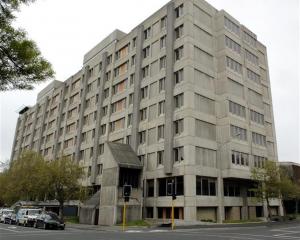The alliance between the Pharmaceutical Society of New Zealand and the Royal New Zealand College of General Practitioners is aimed at improving use of medicines.
The two bodies have signed a memorandum of understanding which is expected to result in closer working relationships between the two sets of health professionals.
There has been considerable concern expressed in recent years about the amount of medicine wasted because it is prescribed and then either not taken according to instructions, or not taken at all.
Recently, Mr Millar instigated the sending of a letter to general practitioners in Otago and Southland asking them to consider exercising prescribing restraint to help the two district health boards which are both in deficit.
This created some controversy within some primary health organisations which said the cost of their GPs' prescribing was already decreasing and a complaint from the New Zealand Pharmacy Guild which alleged the letter contravened an agreement with district health boards about not limiting prescribing volumes.
The Otago board was advised at its recent meeting that there should not be any need to advise the public about pharmacies which had not signed up to the new funding contract.
Earlier this year, board management said those pharmacies which had not signed their contracts by the end of March would not be paid by the board for drugs dispensed or the dispensing fee.
That would mean they would have to decide what to charge for the medicines and their dispensing.
General manager of planning and funding David Chrisp said he was confident all contracts would be signed and there would not be a problem.
Some pharmacists initially indicated they were unwilling to sign the contract because it prohibits them from charging a small blanket fee to cover extra work they may have to do to dispense a prescription.
This could include such things as correcting prescription errors.
They are allowed to charge customers directly for such services, but those who would like to be able to apply the blanket charge say they end up wearing the cost when customers are unwilling or unable to pay extras which could be $30 or more.
Dunedin pharmacist Don Anderson, who went public with his wish to continue with a small across-the-board charge, says he has been taking note of the extras he is not being paid for and intends to send the bill to the board monthly.





